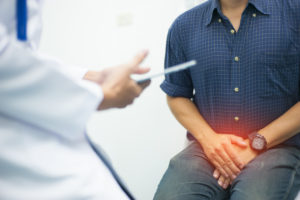While sex is fun, it is not without risks. One of the major risks of any type of sex is that of contracting a sexually transmitted disease, or STD. Unfortunately, STDs do happen, even if you’re careful. Often, you can’t even tell that you’ve been infected right away. In fact, STDs can show up in some pretty interesting ways.
Here are ten common signs of STDs and what to do if you suspect infection.
Signs of STDs

1. Bumps or Sores
New bumps or sores on or around the vaginal area are never a good idea. Before you freak out, however, take a look to make sure that it’s not a pimple or mosquito bite. If you’re not sure what you’re looking at, a pimple or something more serious like a gonorrhea nodule, search for pictures. Try googling chlamydia symptoms pictures, syphilis symptoms pictures, and gonorrhea symptoms pictures. These are three very common diseases that can present with bumps. STD bumps come in all shapes and sizes, so if you are uncertain, it’s better to talk to your doctor.
2. Pain During Sex
While pain during sex isn’t necessarily linked to an STD, it’s not normal. If you suddenly feel pain during sex, you should definitely notify your doctor. If you’re new to sex, especially if you’re a woman, you should talk to a doctor in order to have your questions answered and to ensure that you are safe. You can get an STD even if it is your first time having sex.
3. Aches and Pains
New aches and pains can be due to many reasons, but they can sometimes be due to STDs.
4. Change in Urination
If it suddenly hurts to pee, you may have an STD. However, you may also have a variety of other diseases, such as a UTI or kidney stones. Some STDs that can cause pain during urination include gonorrhea and chlamydia.
5. Unusual Discharge
A new discharge from the vaginal or penile area can be a signal of trichomoniasis and other diseases. Any new discharge should certainly be looked at by a doctor.
6. Burning or Itching in the Vaginal Area
This is never normal, but if it’s something that just started or if it’s an existing problem that’s getting worse, you should see a doctor. STD bumps vary in size and shape
7. Red Eyes
If you suddenly have red-eye for no apparent reason, an STD may be the culprit. Gonorrhea and chlamydia are common culprits for the red-eye and can be diagnosed by your optometrist.
8. Abdominal Pain
There are many causes for abdominal pain, and an STD is also a possibility. Be aware of any new abdominal pain that persists or returns.
9. Flu-like Symptoms
Fever, chills, and malaise can be signs of STDs rather than the flu.
10. Rash
Any new rash is cause for consideration, and in some cases, a trip to your doctor. If you’re not sure if you have a gonorrhea rash or gonorrhea nodule, going to the doctor may be the best solution.
Do I have an STD?
Just because you have any of these signs and symptoms doesn’t mean you have an STD. For instance, just because you have something that looks like a gonorrhea nodule or honoree rash, doesn’t mean you have gonorrhea.
If you suspect that you have an STD, the first thing you should do is see your doctor. While there are many resources online that can help you gauge whether you may potentially have an STD, the only way to be diagnosed and treated is by visiting a doctor.
Fortunately, STD testing and treatment have to be super expensive. Various community-based organizations, including Planned Parenthood, can help you deal with a potential problem or concerning symptoms, even if your budget is tight.
What to expect at your appointment?
Once you attend your appointment, your doctor is going to ask you about your symptoms, medical history, and sexual history. This is the time to be honest and answer your doctor’s questions. Your doctor may also take a urine sample or blood sample.
What happens if I have an STD?
Most STDs can be treated with a course of antibiotics. However, some STDs require extra care and precautions because these have been linked with various cancers. If you are diagnosed with an STD, your doctor will also advise you to contact your recent sexual partners so that they can also receive treatment.
Remember, STDs won’t just go away on their own- even if it seems like things get better for a short time.
Some STDs are reportable by law, which means that labs are required to report positive results to local medical officials. This is done to trace any sexual contacts and stop the spread of the disease.
Can I have more than one STD?
It’s definitely possible to have more than one STD, especially if you are having a lot of unprotected sex.
Protecting Against STD on the Penis and Other Parts of Your Body:
There are many ways to protect yourself against STDs:
- Condoms: There are many types of condoms. They are relatively inexpensive, and they are effective. Use them!
- Get Tested: If you’re sexually active, especially if you’re active with multiple partners, getting tested on a regular basis is important. Catching a disease early can minimize risk and help you feel better faster.
- Talk to Your Partners: Talk about sexual safety with your partner, especially if you have multiple partners.
Takeaways
- There are many possible signs of STDs.
- If you think you have an STD, you should see your doctor.
- Most STDs are treatable, but you do need to actually see your doctor in order to get treatment.
- Never ignore the signs of STDs you notice.
- STD’s will not just go away on their own.
- The best way to protect yourself from STDs is to use a condom.
- There are many ways to get tested and treated, even if you’re on a budget.
Follow these instructions to avoid any sorts of sexual infections and spice up your sexual life with these useful tips.







